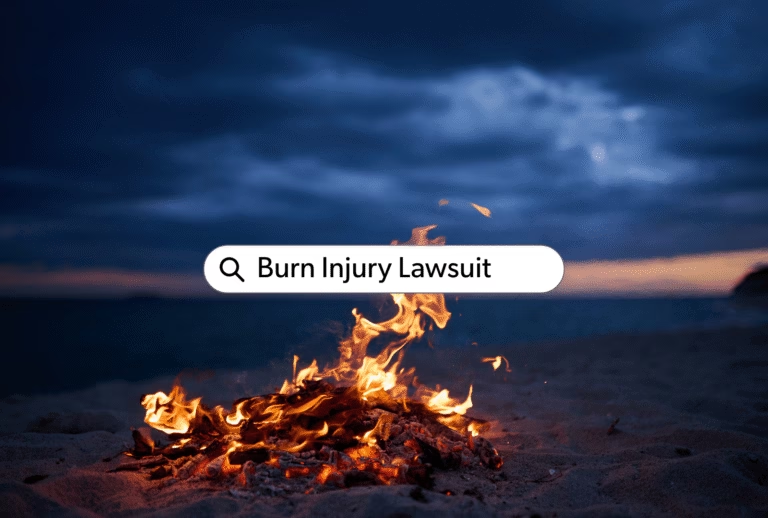In a personal injury case, special damages refer to the financial losses you can prove with tangible records such as medical expenses, lost wages, and property damage. They’re the measurable costs that result from your injury, as opposed to general damages, which cover pain and suffering. In short, special damages are designed to repay you for the money you’ve had to spend (or will need to spend) because of the accident.
If you’ve been injured in a car accident, reach out to Lawyers for Justice, P.C. at (818) JUSTICE or fill out our contact form for a free consultation
What are Special Damages Consisting Of?
In a personal injury claim, special damages refer to the specific financial losses caused by an accident or injury. Special damages are tangible, out-of-pocket expenses that can be clearly documented and assigned a dollar value. Special damages can include medical bills, lost income, property damage, and other measurable costs that stem directly from the incident.
Unlike general economic damages, which compensate for pain, suffering, and emotional distress, special damages are based on concrete evidence such as invoices, pay stubs, and receipts. Accurately calculating special damages is essential because they form the foundation of most personal injury settlements or verdicts. The more detailed and well-supported your financial records are, the stronger your case will be when seeking full compensation for your losses.
Difference Between Damages and Compensation
In a personal injury case, the terms damages and compensation are closely related, but are not identical. Damages refer to the categories of losses a person suffers because of an accident, such as medical bills, lost wages, property damage, or pain and suffering. They describe the harm that occurred and the specific ways an injury has affected a victim’s life. Compensation, on the other hand, is the money awarded to cover those damages.
So, damages define what you’ve lost, while compensation is how you’re repaid. Understanding the difference helps injury victims recognize that a strong case depends not just on proving fault, but also on documenting every form of damage to ensure full and fair compensation.
How Special Damages Are Calculated
Calculating special damages in a personal injury case involves adding up every measurable cost related to the accident. Attorneys start by reviewing all medical bills, hospital records, invoices for physical therapy, and receipts for post-accident expenses. They also consider lost wages by looking at pay stubs or employment records that show how much income was missed during recovery.
When long-term care or reduced earning ability is expected, expert opinions from doctors, economists, or vocational specialists are used to project future financial losses. The goal is to determine the full amount of personal injury monetary compensation that accurately reflects both current and future costs.
Because every dollar must be supported by documentation, maintaining organized records is critical. A detailed, well-documented calculation not only strengthens your claim but also helps ensure you receive fair compensation for all your financial losses.
How a Personal Injury Attorney Can Help
A personal injury attorney plays a critical role in making sure you recover the full value of your special damages and other losses.
After an accident, it can be difficult to identify every cost tied to your injury, especially future medical needs or lost earning potential. An experienced attorney can collect and organize the evidence needed to prove your damages, including medical records, pay statements, and expert evaluations. They also handle communication with insurance companies, who often try to minimize payouts or dispute certain expenses.
A personal injury can calculate your total financial losses and help make sure you receive fair compensation for both your economic and non-economic damages. A powerhouse law firm like Lawyers for Justice, P.C. can give you the best chance at maximum compensation. Call (818) JUSTICE for a free consultation.
Special and General Damages in a Personal Injury Case- FAQ
what are examples of special damages in a personal injury case?
Common examples of special damages include medical expenses for hospital care, surgery, and physical therapy, as well as lost income from time missed at work. They also include the cost of repairing or replacing damaged property, such as a vehicle involved in a crash, transportation to medical appointments, medical equipment, and future treatment expenses.
do I need a lawyer to claim special damages?
You’re not legally required to hire an attorney when claiming damages, but having one can make a significant difference in the outcome of your case. Proving special damages requires detailed documentation, accurate calculations, and a clear understanding of what expenses can be recovered.
A personal injury lawyer can help you gather evidence, identify all financial losses related to your accident, and negotiate with insurance companies that may try to undervalue your claim. Working with a law firm like Lawyers for Justice, P.C. can make sure you receive the full amount of compensation you deserve.
can I recover future expenses as special damages?
If your physical injury requires ongoing medical care, rehabilitation, or other long-term treatment, future costs can be included as part of your special damages. Special damages fall under the broader category of compensatory damages, which are designed to repay victims for the financial impact of an accident. Document your expected medical needs and use expert evaluations to project future expenses and what you could be entitled to receiving.
do special damages apply in every personal injury case?
Special damages apply in most personal injury cases because almost every accident results in some form of financial loss such as medical bills, lost wages, or property damage.
Special damages make up the portion of your financial compensation that can be calculated and proven with documentation. However, not every case involves punitive damages, which are meant to punish especially reckless or intentional behavior rather than repay financial losses.



